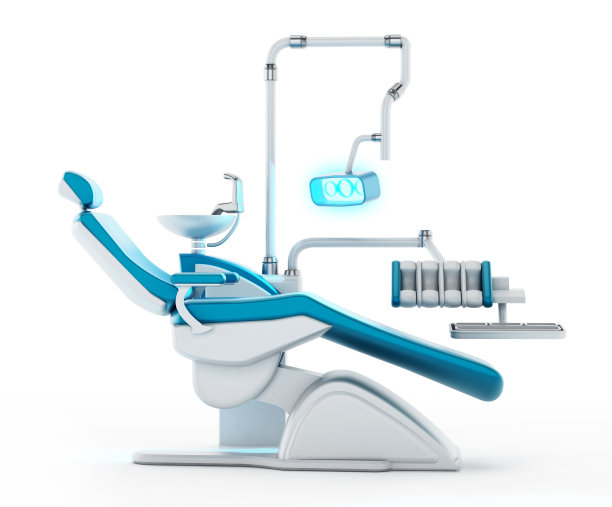Summary: Dental implant treatment techniques have undergone significant advancements that promise to revolutionize oral health and restore confidence in patients. This article delves into the innovative methods utilized in modern dental implant procedures, their long-term benefits for oral health, the profound impact these techniques have on a patients self-esteem, and the future implications for dental practices. As we explore these facets, it becomes evident how essential these advancements are not just in enhancing smiles but also in improving overall well-being.
1. Innovative Techniques in Dental Implants

Recent innovations in dental implant techniques have set new standards in dental restoration. Minimally invasive surgeries are at the forefront, allowing for reduced recovery times and increased comfort for patients. With techniques such as guided implant surgery, dentists can ensure precise placement of implants, resulting in better outcomes and fewer complications.
In addition to minimally invasive methods, advancements in implant materials have also transformed the field. The use of biocompatible materials, such as titanium and zirconia, enhances the likelihood of successful integration with the jawbone. These materials are not only durable but also promote faster healing, providing a more seamless recovery experience.
The incorporation of digital technology has further revolutionized implant placement. From 3D imaging to computer-aided design, these technologies allow for highly customized treatment plans. Patients benefit from tailored solutions that consider their unique anatomical structures, leading to improved functionality and aesthetic results.
2. Enhancing Oral Health Through Dental Implants
Dental implants play a pivotal role in improving oral health by restoring functionality. Missing teeth can lead to difficulties in chewing and speaking, adversely affecting an individual’s quality of life. By replacing lost teeth, implants restore proper function and enable patients to enjoy their favorite foods again.
Moreover, implants help maintain oral structure. When a tooth is lost, the surrounding bone may deteriorate over time due to a lack of stimulation. Dental implants address this issue by providing the necessary stimulation to the jawbone, preventing bone resorption and promoting a healthy oral structure.
Furthermore, dental implants contribute to overall oral hygiene. Unlike dentures, which can trap food particles and bacteria, implants are easy to clean and maintain. Good oral hygiene practices around implants help prevent gum disease and other oral issues, ensuring long-term health and stability.
3. Boosting Confidence with Dental Solutions
The impact of dental implants extends far beyond physical health, playing a crucial role in boosting self-esteem and confidence. Individuals with missing teeth often experience social anxiety and self-consciousness, which can hinder their personal and professional lives. By restoring a complete smile, dental implants help individuals regain the confidence to engage freely with others.
Research indicates that patients with dental implants report higher satisfaction with their appearance compared to those who rely on dentures. The ability to smile openly without the fear of slippage or discomfort transforms social interactions. This newfound confidence can lead to improved relationships, better job prospects, and an overall enhanced quality of life.
Moreover, the psychological benefits of a complete smile are significant. Happy and confident individuals are more likely to participate in social activities and take on new challenges. This transformative effect reinforces the idea that dental health is not just a matter of physical well-being but is deeply intertwined with psychological happiness.
4. Future Developments in Dental Implant Procedures
As technology continues to advance, the future of dental implant procedures looks promising. Ongoing research into stem cell technology and tissue engineering could lead to even more advanced solutions that promote natural tooth growth and repair. Such developments could change the landscape of dentistry, making implants even more accessible and effective.
Furthermore, advancements in artificial intelligence and machine learning are set to optimize dental practices further. These technologies could streamline diagnostic processes, enhance treatment planning, and even predict patient outcomes, making dental care more efficient and tailored.
Additionally, the rise of telehealth services may also transform how patients receive dental implant consultations. Virtual consultations could provide patients with information and guidance before they even step into the clinic, making dental health management more convenient and accessible.
Summary:
The exploration of advanced dental implant techniques highlights significant innovations that improve oral health and enhance patient confidence. These developments not only focus on aesthetic restoration but also contribute to overall well-being, shaping a brighter future for dental practices. As technology continues to evolve, the potential for further advancements in this field remains exhilarating, promising an even more transformative impact on smiles worldwide.
This article is compiled by Vickong Dental and the content is for reference only.
Vickong Dental
Vickong Dental is a large medical group established in Hong Kong in 2008 by professors from well-known medical universities in Guangdong and Hong Kong, as well as medical doctors from key national '985' universities (including Master's supervisors and senior professors). The chain of branches brings together expert dentists with PhDs and Master's degrees from Hong Kong and Mainland China, committed to providing high-quality dental treatment.
"Vickong Dental Practices the University Motto of 'Healing and Serving Society,' with a Stable Operation for Sixteen Years. It Has Been honored with Hong Kong Enterprise Leaders's Choice,' and is a Global Trusted Implant Center for the Nobel Implant System. Recommended by Hong Kong Metro Broadcast and Guangdong Television, it Serves Customers from Over Thirty Countries and Regions, Gaining the Trust and Favor of Citizens from the Guangdong-Hong Kong-Macau Greater Bay Area and Surrounding Cities.

Thousands of customers' unanimous praise
The most recognized and highly recommended dental service by customers in the Guangdong-Hong Kong-Macau Greater Bay Area
We Ensure You Receive Detailed Care and Attention Here
Hong Kong standards, Shenzhen prices, Your Trusted English-speaking dentists

Vickong Dental Medical-Grade Instrument Disinfection Process
Vickong Dental Medical-Grade Instrument Disinfection Process

Vickong Dental Chain: A Warm and Comfortable Environment for Treatment






Appointment Hours

Q&A
Why choose Vickong Dental?
Vickong Dental practices the university motto 「Medicine to Benefit Society」, with each branch bringing together highly qualified dentists with doctoral and master’s degrees from Hong Kong and the Mainland, and has maintained seventeen years of steady operation。Recipient of 「2024 Hong Kong Enterprise Leaders Brand」, 「2025 Hong Kong Enterprise Leaders Brand」, a Nobel Biocare Global Trusted Implant Center, and a brand recommended by Metro Radio Hong Kong and Guangdong TV。
To date, we have served customers from more than thirty countries and regions,earning exceptionally high word-of-mouth recognition and trusted recommendations from residents across the Guangdong-Hong Kong-Macao Greater Bay Area and surrounding cities
We have eight major branches in Zhuhai、Shenzhen,and a consultation and service assurance center in Hong Kong,so you can book a free consultation at any time for any questions,which is very reassuring.
If I do not accept the quotation after the CT scan, will I be charged??
No! As long as the actual treatment has not started, you will not be charged any fees.
Will there be any additional charges during the treatment process?
No, there won’t be any additional charges. Before treatment begins, we will clearly explain the treatment plan and its corresponding fees. Only after the patient agrees and signs the consent form will we proceed with the dental service.
Can I pay in Hong Kong dollars?
Yes. Vickong Dental accepts payment in Hong Kong dollars. The amount will be converted based on the exchange rate of the day, and the applicable rate will be clearly communicated to you in advance.
Can I reschedule my appointment at any time?
Yes. Please contact us via **WeChat** or **WhatsApp** as early as possible, providing your original appointment time and details, along with your preferred new date and time slot for rescheduling.













